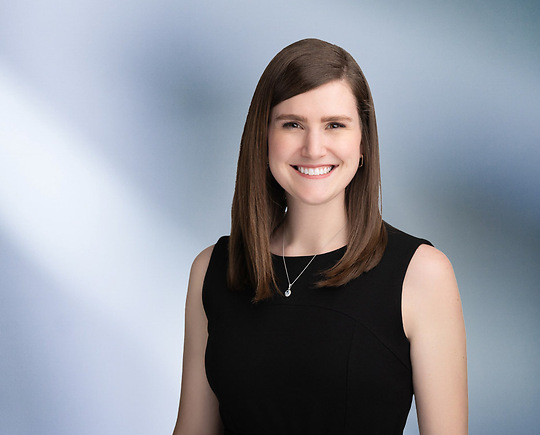
BizTech Law Blog
 The IRS has made it easier for retirement plan sponsors to fix common plan mistakes without going through a formal filing process. Under interim guidance in Notice 2023-43, sponsors can now correct a broader range of errors internally -- saving time, cost, and administrative hassle. This expanded self-correction relief, part of the SECURE 2.0 Act, is available immediately and gives plan sponsors more flexibility, provided that certain conditions are met.
The IRS has made it easier for retirement plan sponsors to fix common plan mistakes without going through a formal filing process. Under interim guidance in Notice 2023-43, sponsors can now correct a broader range of errors internally -- saving time, cost, and administrative hassle. This expanded self-correction relief, part of the SECURE 2.0 Act, is available immediately and gives plan sponsors more flexibility, provided that certain conditions are met.
Expanded Self-Correction Authority Now in Effect
Effective immediately and continuing until Rev. Proc. 2021-30 is formally updated, plan sponsors may self-correct “eligible inadvertent failures,” including some plan loan failures, under the interim framework. This expansion covers certain failures that previously required formal correction through the Voluntary Correction Program (VCP), which required filing with the IRS and paying a user fee.
Conditions for Self-Correction of Eligible Inadvertent Failures
To self-correct under the expanded Self Correction Program (SCP), a plan sponsor must meet all of the following conditions:
- The failure must not have been identified by the IRS before the sponsor took documented and specific steps to implement the self-correction.
- The failure must be corrected within a reasonable period after it is discovered. Generally, corrections completed within 18 months of discovery will be considered timely, but employer eligibility failures must be corrected within 6 months.
- The failure must not be egregious, relate to misuse of plan assets, or involve an abusive tax avoidance transaction.
- The plan sponsor must have established compliance practices and procedures in place at the time of the failure. These may be formal or informal but must be reasonably designed to ensure overall compliance.
- The correction must follow the principles of Rev. Proc. 2021-30, including use of reasonable and appropriate correction methods. Sponsors may use, but are not required to use, the correction methods described in Appendices A and B of Rev. Proc. 2021-30.
Limitations on Self-Correction
Notice 2023-43 also identifies specific types of failures that cannot be self-corrected under the interim guidance. These include:
- Failure to adopt an initial written plan document for qualified or 403(b) plans;
- Failures in orphan plans;
- Significant failures in terminated plans;
- Certain SEP and SIMPLE IRA failures;
- Certain demographic failures not corrected using Treasury Regulation §1.401(a)(4)-11(g);
- Amendments that conform plan terms to operations in a way that is less favorable for participants; and
- Certain ESOP failures involving section 409 tax issues.
In general, significant failures cannot be self-corrected once a plan or plan sponsor is under IRS examination unless specific corrective actions were already underway before the examination began. However, insignificant failures may still be corrected during an examination.
Established Compliance Policies Are Essential
A key prerequisite for using the expanded SCP is that the plan sponsor must have had compliance policies and procedures in place at the time the failure occurred. These procedures must be reasonably designed to promote and ensure compliance with the applicable qualification requirements. Simply adopting procedures after discovering an error will not satisfy this requirement.
Plan sponsors should take this opportunity to review their current practices. If no formal or informal procedures exist, or if existing policies are outdated or incomplete, we strongly recommend taking steps now to develop or update them. Having clear, documented procedures not only supports SCP eligibility but also strengthens overall plan administration and fiduciary oversight.
If your organization needs assistance creating or reviewing compliance procedures, our firm can help ensure your plan is positioned to take full advantage of self-correction relief.
Excise Taxes and Additional Taxes May Still Apply
Self-correction does not automatically waive excise or additional taxes that may be associated with the failure. A plan sponsor may request relief through a VCP filing or by entering into a closing agreement with the IRS, depending on the nature of the issue.
Recordkeeping Requirements
While the guidance does not impose new recordkeeping requirements, plan sponsors should maintain documentation to substantiate the self-correction if such substantiation is requested by the IRS. This includes information identifying the failure, how and when it occurred, the correction method used, and any steps taken to ensure the failure does not recur.
How We Can Help
Our firm advises plan sponsors on whether a specific issue qualifies as an eligible inadvertent failure and how to structure and document a compliant self-correction. We can also assist in drafting or updating internal compliance procedures to help ensure your plan remains eligible for SCP relief.
If your organization has identified a potential plan error or wants to improve its internal controls, please contact us to discuss how we can assist.
- Shareholder
Amanda Dernovshek is an employee benefits attorney in our Business and Tax group. Her practice focuses on issues related to employee stock ownership plans (ESOPs), non-qualified deferred compensation plans, qualified ...
- Shareholder
With a business-minded approach, and service-oriented delivery, Mindi helps clients navigate challenges and solve problems in the areas of employee benefits law and health care law. Mindi has spoken and written extensively on ...


